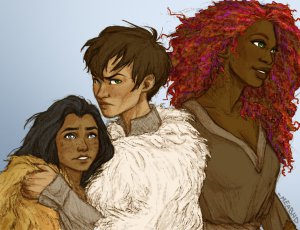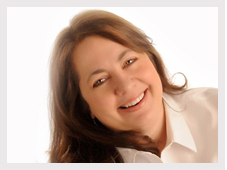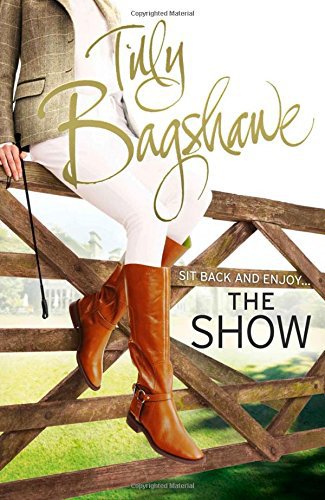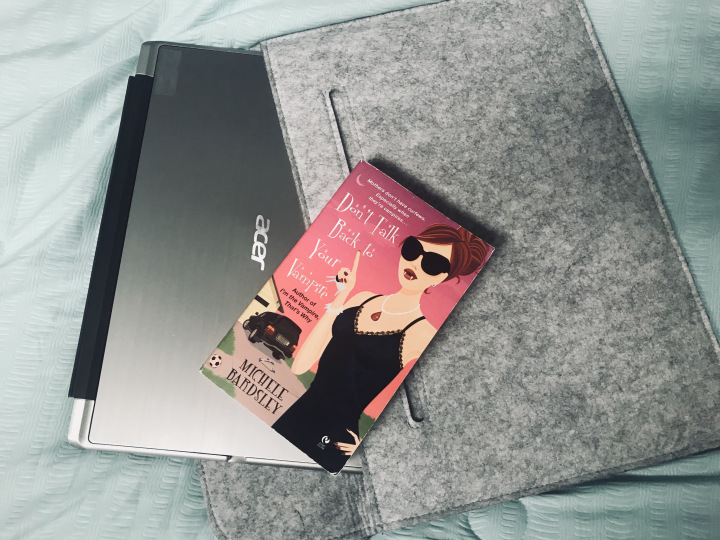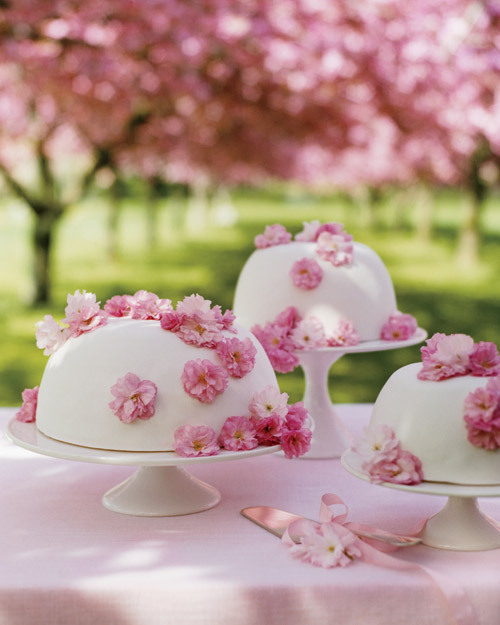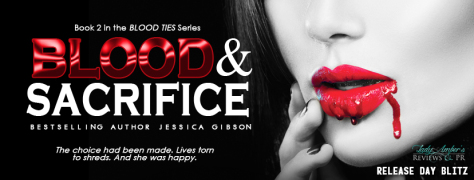I stole this idea from someone on Twitter, but now I can’t remember from whom. Let me know if it was you so that I can credit you! [Note: It was Simon from Stuck in a Book. Thanks, Simon!]
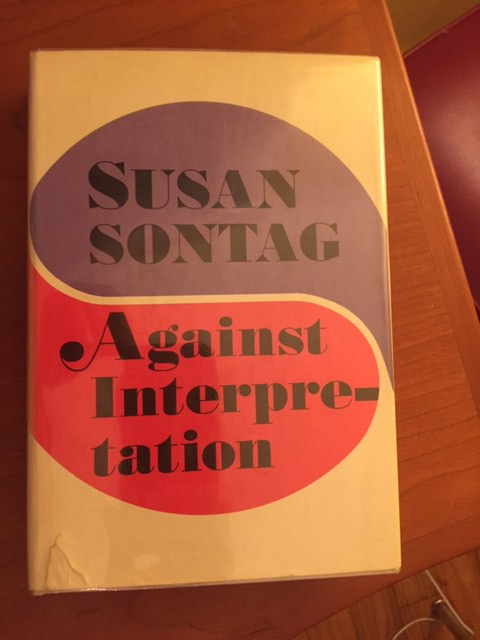
Susan Sontag, Against Interpretation
In my early to mid-twenties I was deeply infatuated with Sontag. Still am, really. I thrilled to her erudition—she’d read everything—and her elegant prose. Essays like hers are still the kind of writing I most admire. The title essay impressed me most of all, especially its famous, hortatory, gnomic last line: “In place of a hermeneutics we need an erotics of art.”

Laurie Colwin, Family Happiness
Another favourite from my twenties. I read all of Colwin’s books the summer between my Junior and Senior year; I was working as a bookseller then, and I hand-sold a ton of them. A few years ago I found this lovely hardcover at a library sale. I was a bit worried about re-reading it—would it hold up?—but I needn’t have. Not only was it as bittersweet as it had been then, but now I could see what at the time I couldn’t: I thought the book was about New Yorkers but it was really about (thoroughly assimilated) Jews. At the time I’d never have imagined that twenty years later I too would be Jewish, but I like to think my philo-Semitism was unconsciously at work. Colwin is so funny, but also so sad.

David Bezmozgis, The Free World
Speaking of Jewishness, I’ve loved each of Bezmozgis’s three books, but I think this one might be the best. It’s about the Soviet Jews who were allowed to emigrate in the 1970s. Three generations of the Krasnansky family (like Bezmozgis, Latvian Jews) wait in Italy for visas to come through from Canada, the US, Australia, anywhere that will take them. Rather than focusing on the young children—that is, the characters who would have been the same age as he was when his family left the USSR for Canada—Bezmozgis focuses on their parents and grandparents. We see what the Soviet Union meant to each of them and how differently they experience even this tentative experience of the ironically named Free World. Smart, funny, no schmaltz.

Anthony Trollope, The Warden
I read this in college and liked it well enough but I think I’d appreciate it a lot more now. Might have been a bit too subtle for me back then. I really want to tackle Trollope soon and the Barsetshire novels seem like a good place to begin.

Olivia Manning, The Balkan Trilogy
Three wonderful novels, pretty closely based on Manning’s own experiences, about a British couple in Romania and Greece before and during WWII. The scenes of denuded, starving Athens haunt me still. Yaki is one of the great characters in 20th century literature.

Ivy Compton-Burnett, The Present and the Past
Do you have writers you’re convinced you love but have never actually read? Probably you are less crazy than I am. But I have at least five or six books by Compton-Burnett around here and haven’t read a one.
Here’s what the publishers say about this one:
Nine years after her divorce from Cassius Clare, Catherine re-enters his life in order to re-establish contact with her children. Her arrival causes a dramatic upheaval in the Clare family, and its implications are analyzed and redefined not only in the drawing room but also in the children’s nursery and the servants’ quarters.
(Sounds like Henry Green!) Anyway, odd, uncanny women 20th Century British writers (Comyns, Rhys, Bowen, etc) are my thing, so I really ought to get around to reading Compton-Burnett soon.

J. G. Farrell, Troubles
A great, great novel set during the Anglo-Irish war and featuring an English Major, Brendan Archer, who comes to Ireland to claim a bride he can’t quite remember proposing to. Angela Spencer is the eldest daughter of an Anglo-Irish family who lives with her family in a once glorious seaside hotel called, no longer quite appropriately, the Majestic. At once funny and macabre, Troubles sets itself the task of trying to figure out how to represent decline. I had a lot to say about this terrific, engrossing book here.

Ben Aaronovitch, Midnight Riot
First in the Urban Fantasy Rivers of London series. Peter Grant is a rookie cop who can speak to the dead and stumbles into a little-known unit of the Met that deals with magic and the uncanny. Perfect light reading.

Josephine Tey, The Franchise Affair
My favourite Tey (though admittedly I have rationed them and kept a couple in reserve), an unsettling novel about a woman and her mother who are accused by a fifteen-year old schoolgirl of having locked her up in their attic for a month. Have they been falsely accused? If so, how will they be acquitted when all evidence points toward their guilt? Can justice be done without prejudice? Unconventional, suspenseful, and thought provoking.

Giorgio Bassani, The Heron
Regular readers know that together with some fellow bloggers, I recently read Bassani’s The Garden of the Finzi-Continis. This, Bassani’s last novel, is the newest addition to my library. I started reading the first page just now and it was all I could do to stop. Elegant mournfulness really does it for me.

There you have it, ten books plucked from the many thousands in this too-small house. Do you have thoughts about any of them? Let me know if you’re inspired to share some from your shelves.
Advertisements Share this: